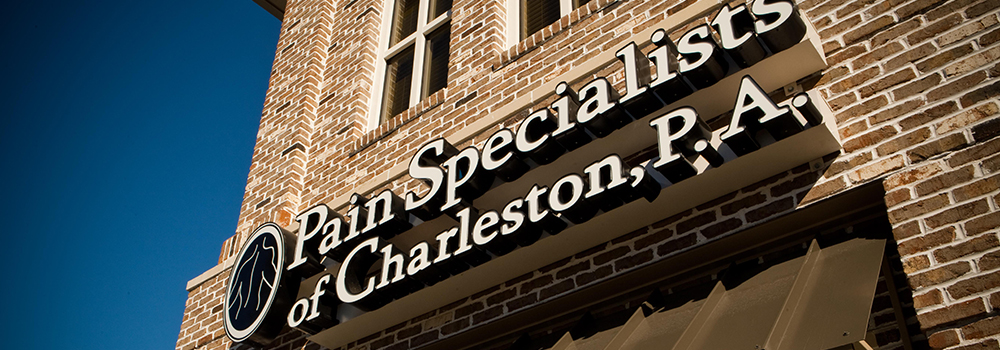When we think of groin pain, our minds most likely think of a man. While this may seem like an accurate representation, groin pain does not discriminate based on gender.
Groin pain is common in people of all ages, affecting both men and women. The most common reasons for groin pain in women stems from overuse or strain of the muscles. However, it can also be a sign of something more serious.
In the world of women’s health, experiencing groin pain can be an uncomfortable – and somewhat complex – topic. Even if the topic may feel embarrassing, you deserve to live a life without pain.
Keep reading to learn more about groin pain in women, and how Pain Specialists of Charleston can help you on the road back to a pain-free life.

What is Groin Pain?
Groin pain is the general term for pain or discomfort in the area where your abdomen and upper thigh meet. Pain may start suddenly or develop over time and can occur on either side of the body.
Female groin pain on the left side may be indicative of overuse of the groin muscles. An injury to these muscles can cause inflammation and lead to increased groin pain when walking or overall movement.
The right side, on the other hand, may tell a different story. Groin pain on the right side can be caused by overuse, however, it may also indicate a problem affecting your reproductive organs or lower gut.
What Causes Groin Pain in Women?
The causes behind groin pain in women can be linked to anything from a mild strain to ovarian cysts. Because the causes can range in severity and are linked to so many possibilities, it’s important to visit your pain management physician to help you get to the root cause of your pain.
Your groin pain can be linked to some of the following conditions or problems, including:
Groin Strain
One of the most common causes of groin pain, a strain occurs when a muscle is overstretched and torn. This injury can arise while performing certain exercises or sports that involve running, jumping, or quick side-stepping maneuvers.
Hip Osteoarthritis
Hip osteoarthritis occurs when the cartilage on the end of a ball and socket hip joint begins to thin and disintegrate. This weathering can cause increased friction with hip movement and can lead to a build-up of excess bone. Pain can radiate from the hip area to the thighs and buttocks.
Sports Hernia
A sports hernia is a broad term referring to a strain or sprain of a ligament, muscle, or tendon specifically in the lower stomach or groin region. As its name suggests, this type of injury can occur while playing sports that involve quick changes in direction, such as hockey or soccer.
Urinary Tract Infections (UTIs)
Most women are no strangers to the effects of a UTI. Urinary tract infections occur when bacteria enter the body through the urethra. UTIs can cause cramping in the groin and lower part of the stomach, as well as burning with urination, increased frequency of urination, or blood in the urine.
Pinched Nerve
The nerves are responsible for controlling the feeling and strength in your legs. When they are compressed or pinched, the result is radiating pain from your lower back or thigh into your groin area. A bulging disc or stenosis, the narrowing of the spinal canal, can cause a pinched nerve.
Hip Fracture
The hip joint is one of the most vulnerable parts of the body and one of the most common areas for a fracture to occur. If you’re middle-aged and have undergone the “beauty” of menopause, you pose a higher risk of developing osteoporosis. Osteoporosis is a condition that causes bone density to decrease, making it more likely for a fracture to occur.
There are many causes of groin pain, ranging from athletic-related injuries to GI-related conditions. Finding a physician you trust to handle your pain management in Charleston, SC is a crucial first step to getting relief.
What Does Groin Pain Feel Like?
The pain in your groin is an experience not only felt but sometimes heard. It can feel like pulling or tearing in your groin region, accompanied by shooting pain or popping sensations.
Groin pain can vary from person to person – while some may feel the sharpest pain getting out of bed in the morning, others may feel its gradual worsening throughout their day.
The symptoms of your groin pain play an important role in determining the underlying cause. For example, chronic pain when you exercise may indicate a groin strain while a sharp, stabbing pain that shoots down your leg could be a sign of a herniated disk.
Pay attention to your symptoms to better help your pain management physician find the root cause of your pain and develop a personalized treatment plan.
Will a Pain Management Physician Really Help?
At Pain Specialists of Charleston, we specialize in treating your pain utilizing interventional pain management techniques. Instead of focusing solely on surgery or habit-forming drugs to aid in your recovery, we lend our expertise to steroid injections, physical therapy, and specialized massage therapy, among others.
Depending on the cause of your pain, we may recommend daily exercises for groin pain or stretches prescribed by our physical therapists. A nerve block or steroid injection may also help to alleviate your pain.
Our treatment plan is designed for you – it is personalized to your medical history, pain, and comfort level.

Bridging the Gap in Female Groin Pain Starts at Pain Specialists of Charleston
Being a female is never easy, especially when you add the unknown stress of groin pain to the mix. While it may be an uncomfortable subject, it’s even more uncomfortable to live every day in pain.
With Pain Specialists of Charleston by your side, we make it our mission to help you manage and alleviate your pain symptoms so you can get back to what really matters in your day-to-day life.
From interventional pain treatments to the latest medical research, our Board-Certified Physicians specialize in helping our patients say goodbye to pain without surgery or habit-forming drugs.
Call us today to schedule an appointment and reclaim your quality of life!
Additional Helpful Articles:
What Should I Expect During My First Pain Management Appointment?
Interventional Pain Management: Everything You Need to Know
What Does a Pain Management Physician Do?
Can Ozempic Cause Muscle Pain?
What’s the Best Leg Pain Treatment Without Surgery?
When Should I See a Doctor for Runner’s Knee?
Why Do Side Sleepers Wake Up to Shoulder Pains?
What are the Reasons for Random Pains in My Buttocks?
How Can I Get Immediate Relief for Sciatic Pain?
Get to Know Pain Management Physicians:
Our Services:
Diagnosis | Treatment | Interventional Pain Management | TRICARE | Wellness | Clinical Trials | Worker’s Compensation | Neurology | Imaging/ MRI
Published August 2024
